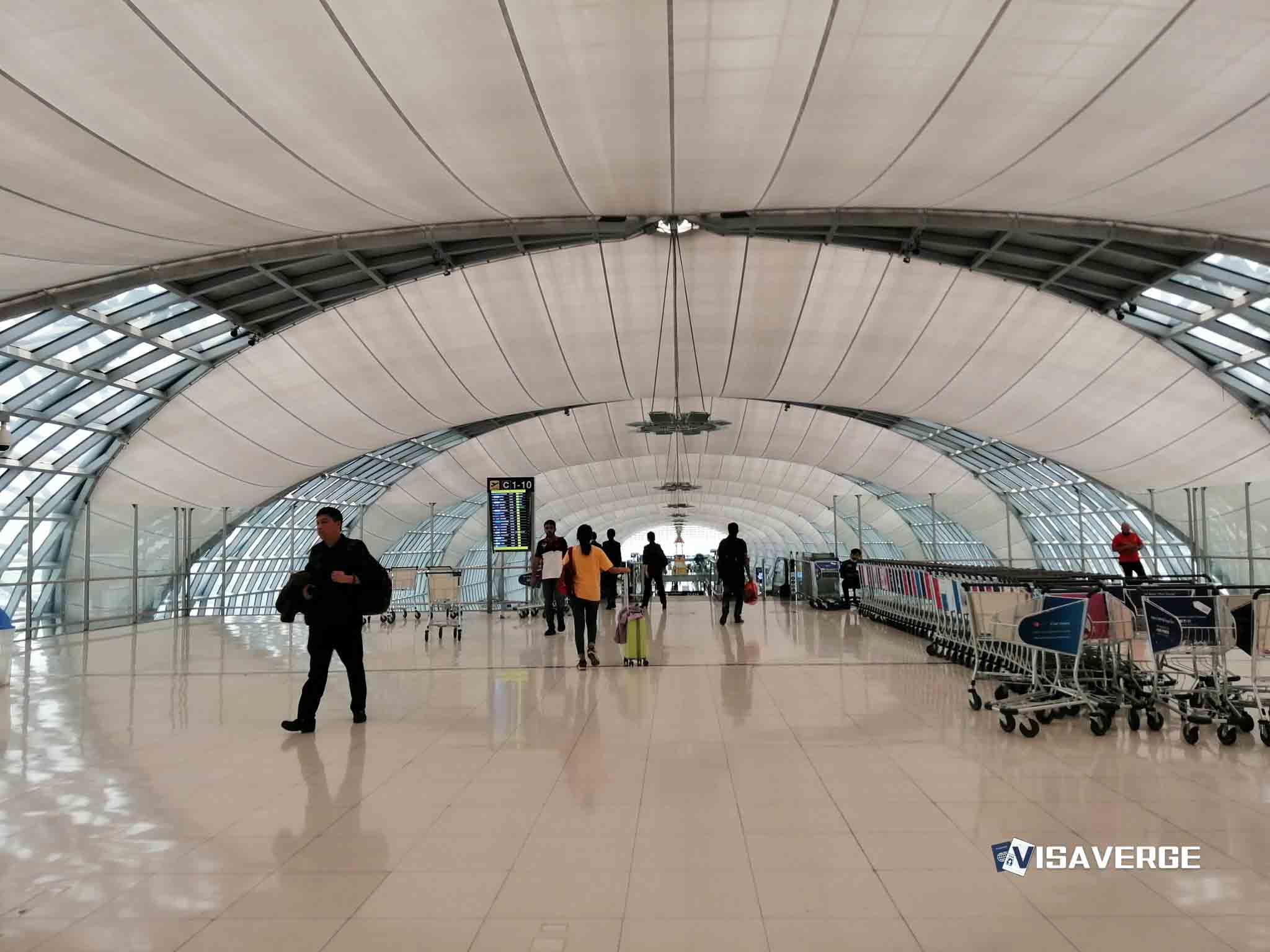Key Takeaways
• ICE pays CoreCivic $4.2 million monthly to operate Leavenworth prison under a no-bid contract.
• Contract justified by a Trump-declared ‘national emergency’ to bypass competitive bidding process.
• CoreCivic expands immigrant detention capacity by 784 beds across multiple facilities in 2025.
A secret, no-bid contract between U.S. Immigration and Customs Enforcement (ICE) and CoreCivic, one of the largest private prison companies in the United States 🇺🇸, has sparked widespread debate and concern. As of July 1, 2025, ICE is paying CoreCivic about $4.2 million per month to operate the previously vacant Leavenworth prison in Kansas. This arrangement, justified by ICE under a “national emergency” declared by President Trump, has raised questions about transparency, government spending, and the treatment of immigrants held in detention.
Why Did ICE Award a No-Bid Contract to CoreCivic?

ICE used the justification of a “national emergency” at the southern border to bypass the usual competitive bidding process. Normally, government contracts—especially those involving millions of taxpayer dollars—are open to bids from different companies. This process is meant to ensure the government gets the best value and that the process is fair and open.
However, ICE claimed that the emergency at the border posed “significant public safety risks.” This allowed the agency to award the contract directly to CoreCivic without competition and to keep many details secret. According to court filings, if legal challenges by the city of Leavenworth succeed in blocking the reopening of the prison, CoreCivic stands to lose a major source of revenue.
What Makes This Contract So Controversial?
Several factors have made this contract a flashpoint for criticism:
- Secrecy: The details of the contract have not been made public. This lack of transparency has angered immigration advocates, local residents, and even some lawmakers.
- High Cost: The government is paying CoreCivic $4.2 million every month, even though the Leavenworth facility was previously closed and empty.
- No-Bid Process: By skipping the usual bidding process, ICE removed the chance for other companies to offer better terms or lower prices.
- Justification: Critics argue that using a “national emergency” as a reason for the contract is questionable, especially since the emergency was declared years ago and the situation at the border has changed.
Michael Sharma-Crawford, a Kansas City immigration attorney, summed up the frustration by saying the government is “overpaying billionaires to house human beings on civil law violations,” pointing out that most people held in these centers have not committed crimes but are waiting for immigration hearings.
CoreCivic’s Growing Role in Immigrant Detention
This contract is not an isolated case. In early 2025, CoreCivic expanded its contracts with ICE to increase immigrant detention capacity at several other facilities, including:
- Northeast Ohio Correctional Center
- Nevada Southern Detention Center
- Cimarron Correctional Facility in Oklahoma
- Tallahatchie County Correctional Facility in Mississippi
These expansions allow ICE to detain up to 784 more people across these sites. This move is part of a larger federal strategy to increase detention space as immigration enforcement policies continue to focus on detaining and deporting more people.
Background: How Did We Get Here?
The roots of this situation go back to the immigration enforcement policies of President Trump. His administration pushed for mass deportations and expanded the use of detention centers. To meet the demand for more space, ICE turned to private contractors like CoreCivic.
Many of the facilities used for immigrant detention were previously closed due to poor conditions or lack of need. Reopening these centers has raised concerns about:
- Detainee mistreatment: Reports of abuse, neglect, and poor living conditions have surfaced at several private detention centers.
- Labor violations: Some detainees have claimed they were forced to work for little or no pay.
- Inadequate healthcare: There have been complaints about lack of medical care and delays in treatment.
These issues have led to lawsuits, protests, and calls for greater oversight of private detention centers.
Congressional Oversight and Calls for Accountability
In May 2025, the Senate Judiciary Committee sent a letter to CoreCivic CEO Damon Hininger. The committee asked for detailed information about CoreCivic’s operations under its current contracts with ICE. Lawmakers expressed concern about:
- The treatment of detainees
- The rapid expansion of detention capacity
- The lack of transparency in how contracts are awarded and managed
The committee emphasized the need for accountability and openness in private detention operations, especially given the history of problems in these facilities.
Local Opposition and Legal Challenges in Leavenworth
The city of Leavenworth and many local residents have strongly opposed the reopening of the CoreCivic prison. Their concerns include:
- Poor track record: CoreCivic has faced criticism for its management of other facilities, including reports of unsafe conditions and mistreatment.
- Community impact: Residents worry about the social and economic effects of having a large detention center in their area.
- Lack of input: Many feel the decision was made without consulting the community or considering their concerns.
Legal proceedings are ongoing as the city tries to block the reopening. If the courts side with Leavenworth, the contract with CoreCivic could be canceled or changed.
How Does This Affect Different Groups?
For Detainees
The expansion of detention capacity and reopening of facilities like Leavenworth means more immigrants will be held in private prisons. Many of these people are waiting for immigration hearings, not serving time for crimes. There are ongoing concerns about:
- Living conditions: Overcrowding, lack of privacy, and poor sanitation are common complaints.
- Access to legal help: Detainees often struggle to find lawyers or get information about their cases.
- Healthcare: Delays in medical care and lack of mental health support can have serious consequences.
For Taxpayers and Local Communities
The government is spending $4.2 million each month on just one facility. This raises questions about:
- Efficient use of public funds: Could the money be better spent on alternatives to detention, such as community-based programs?
- Transparency: Without open bidding and public disclosure, it’s hard to know if taxpayers are getting a fair deal.
- Community impact: Large detention centers can affect local economies, property values, and the overall sense of safety.
For CoreCivic
The contract is a major source of revenue for CoreCivic, but it also brings risks:
- Legal challenges: Ongoing lawsuits could stop the company from operating the Leavenworth facility.
- Reputation: Negative publicity and criticism from lawmakers, advocates, and the public can hurt the company’s image.
- Future contracts: Increased scrutiny may make it harder for CoreCivic to win new contracts or keep existing ones.
Expert Perspectives: Human Rights and Due Process
Immigration attorneys and advocates have been vocal in their criticism of the contract. They argue that:
- Detaining people for civil law violations (like overstaying a visa or crossing the border without permission) should not be treated the same as criminal offenses.
- Private companies should not profit from detaining vulnerable people, especially when there are reports of abuse and neglect.
- The lack of transparency and oversight makes it hard to ensure detainees’ rights are protected.
Congressional oversight bodies have echoed these concerns, calling for more openness and stricter rules for private detention centers.
What Happens Next? The Future of Immigrant Detention Contracts
Several key developments could shape what happens in the coming months:
- Legal battle in Leavenworth: The outcome of the city’s lawsuit will determine if CoreCivic can reopen the facility and keep receiving payments.
- Congressional action: Lawmakers may push for new laws or rules to make ICE’s contracting process more open and to protect detainees’ rights.
- Public pressure: Protests, media coverage, and advocacy could lead to changes in how the government uses private detention centers.
- ICE’s ongoing expansion: If current trends continue, ICE may award more contracts to private companies like CoreCivic, unless legal or political changes occur.
What Are the Alternatives to Private Detention?
Many experts and advocates suggest that there are better, more humane, and cost-effective ways to handle immigration cases. These include:
- Community-based programs: Instead of locking people up, these programs provide support and supervision while immigrants wait for their hearings.
- Case management: Trained workers help immigrants understand the legal process, show up for court, and access services.
- Release on bond: Allowing people to pay a bond and live in the community while their case moves forward.
Studies have shown that these alternatives can be much cheaper than detention and still ensure that people attend their court hearings.
Official Resources and Where to Learn More
For those seeking more information about ICE detention contracts and policies, the official U.S. Immigration and Customs Enforcement website offers up-to-date details on detention management and facility contracts. The Senate Judiciary Committee also publishes public releases and reports on its oversight activities.
Community advocacy groups in Leavenworth and Kansas City provide updates and resources for residents and affected individuals. Legal aid organizations can help detainees and their families understand their rights and options.
Conclusion: What Should Stakeholders Do Now?
The rushed, no-bid contract between ICE and CoreCivic for immigrant detention at Leavenworth is a complex issue with far-reaching effects. It highlights the ongoing debate over the role of private companies in immigration enforcement, the use of public funds, and the treatment of people caught up in the immigration system.
For immigrants and their families: Stay informed about your rights and seek legal help if you or a loved one is detained. Community groups and legal aid organizations can offer support.
For taxpayers and local residents: Ask questions about how your tax dollars are being spent and get involved in local discussions about detention centers in your area.
For policymakers and advocates: Push for greater transparency, oversight, and the use of humane alternatives to detention.
As reported by VisaVerge.com, the outcome of the legal and political battles over contracts like the one with CoreCivic will shape the future of immigrant detention in the United States 🇺🇸. The choices made now will affect thousands of lives and set important precedents for government accountability and human rights.
For the latest updates and official information, visit the U.S. Immigration and Customs Enforcement detention management page.
By staying informed and engaged, all stakeholders can help ensure that immigration policies are fair, transparent, and respect the dignity of every person.
Learn Today
ICE → U.S. Immigration and Customs Enforcement agency managing immigration enforcement and detention.
No-bid contract → A government agreement awarded without competitive bidding to expedite urgent services.
CoreCivic → One of the largest private prison companies operating immigrant detention centers in the U.S.
National emergency → A government-declared urgent situation allowing special powers such as bypassing bidding rules.
Detention capacity → The maximum number of detainees a facility can legally hold at one time.
This Article in a Nutshell
ICE’s secret no-bid contract with CoreCivic revives Leavenworth prison, costing $4.2 million monthly. Critics denounce secrecy, high costs, and poor detention conditions amid growing legal and community challenges.
— By VisaVerge.com








